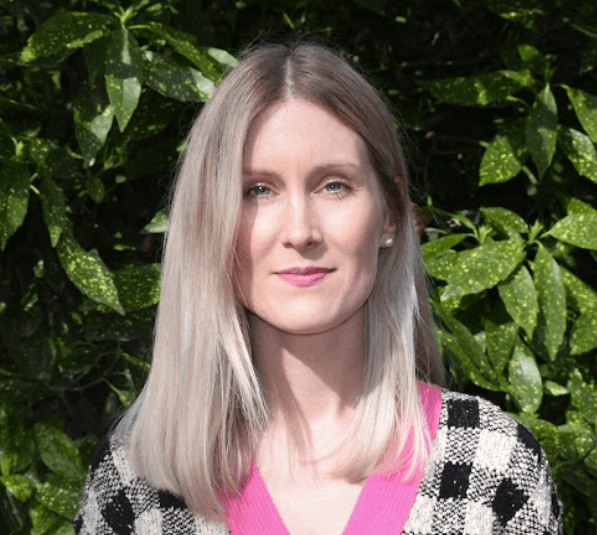
Sille Aule, Senior Fundraising Officer, Money and Mental Health Policy Institute
Introducing: Sille Aule
4 April 2023
As a fundraising professional who is passionate about alleviating social deprivation and challenging social norms, I find Money and Mental Health’s vision – “working for a world in which the vicious cycle of money and mental health problems is broken“ – very compelling.
Why I am pleased to be here
Besides its practical value, it is often forgotten that money can be a source of deep emotion, conflict, anxiety and shame. A taboo against talking about it removes an important strategy for addressing mental health problems. I have seen firsthand how a lack of understanding of the links between money and mental health problems makes it harder for essential services providers to engage and support people whose mental health problems are related to money. My awareness has also been growing as to how many of us struggle to earn money, to manage spending and to choose, use and pay for essential services due to mental health problems.
The Money and Mental Health Policy Institute exists to advance understanding of mental health, financial difficulty and the relationship between the two. I strongly believe in its mission and am incredibly excited to have joined the charity to lead its income generation work with trusts, foundations and corporates.
My background
With five years of experience fundraising for charities before joining Money and Mental Health, I have had the opportunity to raise funds for causes including education, disability and mental health. During this time, I have enjoyed broadening my knowledge and skills in what Henry A. Rosso, a leader in establishing philanthropic fundraising as a profession, described as “… the gentle art of teaching the joy of giving.”
This includes winning new business (including developing new income streams) and repeat funding from a variety of sources, including trusts and foundations, public sector tenders, events, digital campaigns and corporate partnerships. The varied nature of my fundraising career has enabled me to develop strategies, processes and collateral, to manage a portfolio of projects, to research and collect data and to work collaboratively with both internal and external stakeholders. The strategies I enjoy developing the most include building relationships, tailoring proposals and measuring impact.
Trusts, foundations and corporates are becoming increasingly focused on partnership work (whether within the third sector or cross-sector) and shared learning. Collaboration is seen as key not only for the charity sector moving forward, but also for improving outcomes for people with mental health problems and financial difficulty. Collaboration is also one of our key values at Money and Mental Health.
I am keen to explore how Money and Mental Health’s high-quality action-oriented research is coupled with developing better practices and perspectives in partnership with both those providing services and those using them (our Research Community, a group 5000 Experts by Experience). Together we can bring about much-needed change – so that more people who are struggling with their mental health can get the advice and support they need.
It has never been more important to innovate
Research Money and Mental Health conducted last year shows that across the country, people with mental health problems are being left behind. The current economic climate and cost of living crisis also present numerous challenges for fundraisers and charities to navigate. Against this backdrop, in comparison to physical health conditions, mental health research remains chronically underfunded.
“With the cost of living crisis now really starting to bite, and levels of mental distress still significantly higher than before the pandemic, our work is more important than ever.” Helen Undy, Chief Executive
This is why, even in the toughest times, we need to be ambitious. It has never been more important for charities like Money and Mental Health to campaign, collaborate, test and innovate until research leads to real change. And funders – and those that back the sector by grant-making – should consider backing innovation and giving charities the space to be ambitious and carry the risk alongside us. No one organisation can tackle current economic problems alone.
“This is not a crisis of personal money management. This is a societal crisis that every stakeholder in society – government, regulator, business, media – need to look at and focus on how we get through it.” Martin Lewis OBE, Founder and Chair, Money and Mental Health
